National
Low and middle income Canadians hit hardest by high marginal effective tax rates
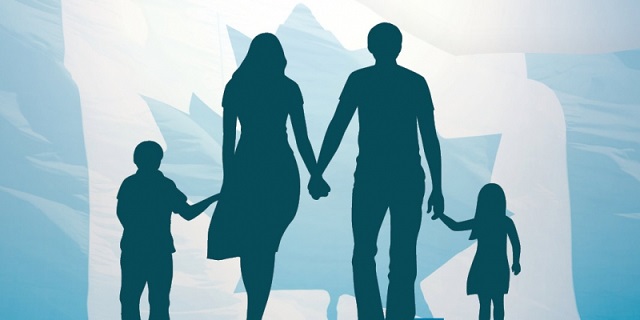
From the Fraser Institute
By Philip Bazel
A new study published by the Fraser Institute today finds that Canadian families and individuals with annual incomes between $30,000 and $60,000 face marginal effective tax rates near or above 50%.
Among the provinces, BC has the lowest tax rates of 38%.
Ontario has a rate of 50% – and high-income families at $300,000+ are taxed lower at 44%.
Families with modest income brackets consistently face disproportionately high marginal effect tax rates, raising questions of fairness and efficiency in the tax and transfer system.
Dig into the numbers and see how your province placed here.

Canadian families and individuals with annual incomes between $30,000 and $60,000 face marginal effective tax rates near or above 50 per cent, finds a new study published by the Fraser Institute, an independent, non-partisan Canadian public policy think-tank.
“Canadian families with modest incomes face high marginal effective tax rates, often higher rates than Canadians in top income tax brackets,” said Jake Fuss, director of fiscal studies at the Fraser Institute, which published Marginal Effective Tax Rates for Working Families in Canada by Philip Bazel, an associate at the School of Public Policy at the University of Calgary.
The marginal effective tax rate (METR) measures the personal income taxes paid (federal and provincial) and the reductions in government benefits, resulting from earning an extra dollar. For example, the Canada Child Benefit, a monthly payment, is reduced as family income increases. In other words, the effective tax rate is the combination of taxes you pay and benefits you lose as you make more money.
Crucially, across the provinces, individuals and families with relatively modest incomes face the highest rates. This unfortunately creates a disincentive for earning additional income, as the financial benefits are significantly offset by increased taxes and/or reduced government benefits.
Canadian families with modest incomes, particularly those earning between $30,000 and $60,000, face the highest marginal effective tax rates. For example, families earning a household income of $60,000 are subject to an effective tax rate of 50 per cent or higher in every province. In Quebec, the METR is as high as 67 per cent at this income level.
Among provinces, BC has the lowest rate (38 per cent) averaging across the $30,000 to $60,000 bracket. Ontario’s rate for the $30,000 to $60,000 bracket is 6 percentage points higher (50 per cent) than high-income families at $300,000 or higher (44 per cent).
“Families with modest income brackets consistently face disproportionately high METRs, raising questions of fairness and efficiency in the tax and transfer system,” Bazel said.
“These findings highlight the need to prioritize METR reductions for low-income families.”
Author:
National
British Columbia quickly shoots down bill to ban men from competing in women’s sports

From LifeSiteNews
‘There are inherent differences between males and females, ranging from chromosomal and hormonal differences to physiological differences,’ bill author and B.C. Conservative leader John Rustad said.
The provincial legislature of British Columbia quickly voted down a Conservative bill seeking to prohibit men who believe themselves to be women from participating in women’s sports.
On April 30, British Columbia Members of the Legislative Assembly (MLAs) voted 51 to 27 against B.C. Conservative leader John Rustad’s bill to protect women from having to compete against men in sports.
“I’m proud to say before this House, the amazing women and girls who are here with us today, that this piece of legislation is not only the first of its kind in Canada, but it was an entirely female-led initiative from start to finish,” Rustad told the assembly.
“The bill was written by women and girls for women and girls,” he added.
Bill M214, the Fairness for Women’s and Girl’s Sports Act, would have mandated that all publicly-funded sports and athletic teams, events and tournaments be classified by sex.
“Participation in a sporting team or event must be limited to individuals of the biological sex that corresponds to the sex classification of the sporting team or event,” the bill said.
The bill provided an exception to allow women to participate in men’s sports, but men were banned from competing in women’s sports. The bill offered a provision for male and female players to play together in a co-ed league or event.
“There are inherent differences between males and females, ranging from chromosomal and hormonal differences to physiological differences,” Rustad explained.
“But more than the obvious differences, over time, women and girls have struggled to be identified as a person,” he stated. “They have struggled to have the right to vote. They have struggled to be allowed to be in certain places, and they have struggled to be paid fairly.”
“And here today in 2024 in this Legislature, the necessity to move forward the bill is to make sure that once again, women are treated fairly,” he appealed.
Rustad argued that sex-separated sports are “vital in order to maintain the fairness for women and girls’ athletic opportunities in British Columbia.”
“I would urge all members of this House to vote in support of this legislation because we all deserve to live our lives with integrity,” he declared.
However, the bill was quickly shut down in its first reading, with the ruling New Democratic Party (NDP) voting against the initiative.
The vote was met with dismay by many Canadians, including female powerlifter April Hutchinson, who is known for speaking out against men dominating women’s sports.
“Here is the complete list of members who voted for and against The Fairness in Women’s & Girls sports Act,” she posted on X, formerly known as Twitter.
“British Columbia residents! Ask your MLA why they voted against protecting women and girls and hold them @bcndp accountable,” she encouraged.
Here is the complete list of members who voted for and against The Fairness in Women's & Girls sports Act.
British Columbia residents! Ask your MLA why they voted against protecting women and girls and hold them @bcndp accountable. Again, a huge thanks to @JohnRustad4BC and the… pic.twitter.com/QPlpMAZT8V— April Hutchinson (@Lea_Christina4) May 1, 2024
“Again, a huge thanks to @JohnRustad4BC and the @Conservative_BC who displayed great courage respect and integrity today,” she declared.
Rustad’s initiative is similar to legislation the neighboring province of Alberta has promised to pass which also seeks to bar men from women’s sports.
Regardless of the claims of LGBT activists, studies continue to back up the common sense reality that males hold a massive advantage over women in athletic competitions. A recent study published in Sports Medicine found that even a year of cross-sex hormones results in “very modest changes” in the inherent strength advantages of men.
Addictions
City of Toronto asks Trudeau gov’t to decriminalize hard drugs despite policy’s failure in BC
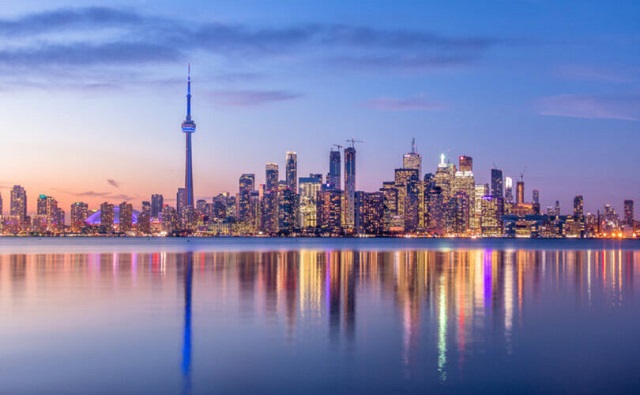
From LifeSiteNews
“Criminalizing the possession of drugs for personal use leads to discrimination and stigma, and contributes to people hiding their drug use from their physicians, friends, family, colleagues, and community”
The City of Toronto is asking Prime Minister Justin Trudeau’s government to decriminalize hard drugs.
In a March letter, Toronto city officials appealed to the Trudeau government to legalize all quantities of crack, cocaine, heroin, meth, and other hard drugs, despite warnings that it will bring increased chaos and violence to the city. Its reasoning is that people look askance at drug abuse and drug abusers, who then attempt to hide their habit.
“The evidence demonstrates that criminalizing the possession of drugs for personal use leads to discrimination and stigma, and contributes to people hiding their drug use from their physicians, friends, family, colleagues, and community,” the document claimed.
The letter, penned by Medical Officer of Health Dr. Eileen de Villa, City Manager Paul Johnson, and Chief of Police Myron Demkiw requested that the Trudeau government decriminalize hard drugs for young people as well as adults. The application places no limit on the quantity of drugs which would be legally obtained.
Toronto is already seeing a rise in crime since the election of Toronto mayor Olivia Chow. Canadians have pointed out that Toronto is dealing with several issues, without adding the decriminalization of hard drugs,
“Trudeau must reject Toronto’s application to allow public use of crack, cocaine, heroin, & other hard drugs,” Conservative Party leader Pierre Poilievre wrote on X, formerly known as Twitter.
“His dangerous policy cannot bring the same chaos, death & destruction to more Canadian cities,” he added.
Trudeau must reject Toronto's application to allow public use of crack, cocaine, heroin, & other hard drugs.
His dangerous policy cannot bring the same chaos, death & destruction to more Canadian cities. pic.twitter.com/hG5h9lsWPq
— Pierre Poilievre (@PierrePoilievre) May 1, 2024
Poilievre’s condemnation was echoed by Ontario Premier Doug Ford who promised, “I will fight this tooth and nail. This is the wrong way to go.”
Poilievre further explained that Canadians have already seen the dystopian effects of the decriminalization of hard drugs in British Columbia, which “has caused chaos in hospitals, playgrounds, parks, and public transport.”
READ: British Columbia should allow addicts to possess even more drugs, federal report suggests
Beginning in early 2023, Trudeau’s federal policy, in effect, decriminalized hard drugs on a trial-run basis in British Columbia.
Under the policy, the federal government began allowing people within the province to possess up to 2.5 grams of hard drugs without criminal penalty, but selling drugs remained a crime.
The province’s drug policy has been widely criticized, especially after it was found that the province broke three different drug-related overdose records in the first month the new law was in effect.
Last week, BC Premier David Eby finally admitted that the province’s ‘safe supply’ program was a failure and called on the Trudeau government to reverse the program. However, Trudeau has yet to respond to the province’s appeal for help.
“Safe supply“ is the term used to refer to government-prescribed drugs that are given to addicts under the assumption that a more controlled batch of narcotics reduces the risk of overdose. Critics of the policy argue that giving addicts drugs only enables their behavior, puts the public at risk, and disincentivizes recovery from addiction. Where “safe supply” has been implemented, it has not reduced the number of overdose deaths. It has sometimes even increased it.
The effects of decriminalizing hard drugs in parts of Canada have been exposed in Aaron Gunn’s recent documentary Canada is Dying, and in the British Telegraph journalist Steven Edginton’s mini-documentary, Canada’s Woke Nightmare: A Warning to the West.
Gunn says he documents the “general societal chaos and explosion of drug use in every major Canadian city.”
“Overdose deaths are up 1,000 percent in the last 10 years,” he said in his film, adding that “[e]very day in Vancouver four people are randomly attacked.”
Even Liberals have begun admitting that Trudeau’s drug program has not helped addicts but only added to their problems.
In April, Liberal MP Dr. Marcus Powlowski testified that violence from drug users has become a problem in Ottawa, especially in areas near the so-called “safe supply” centres which operate within blocks of Parliament Hill.
“A few months ago I was downtown in a bar here in Ottawa, not that I do that very often, but a couple of colleagues I met up with, one was assaulted as he was going to the bar, [and] another one was threatened,” said Powlowski.
“Within a month of that, I was returning down Wellington Street from downtown, the Rideau Centre, and my son who is 15 was coming after me,” he continued. “It was nighttime, and there was someone out in the middle of the street, yelling and screaming, accosting cars.”
RELATED: Liberal MP blasts Trudeau-backed ‘safe supply’ drug programs, linking them to ‘chaos’ in cities
-

 Business1 day ago
Business1 day agoWEF panelist suggests COVID response accustomed people to the idea of CBDCs
-
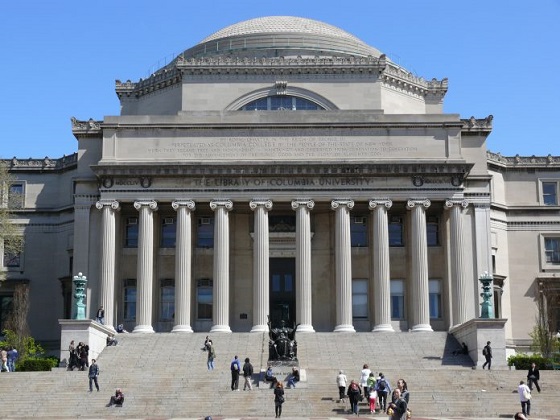
 conflict2 days ago
conflict2 days agoColumbia on Lockdown After pro-Palestinian Protesters Take Over Building, Hold Janitors Hostage
-
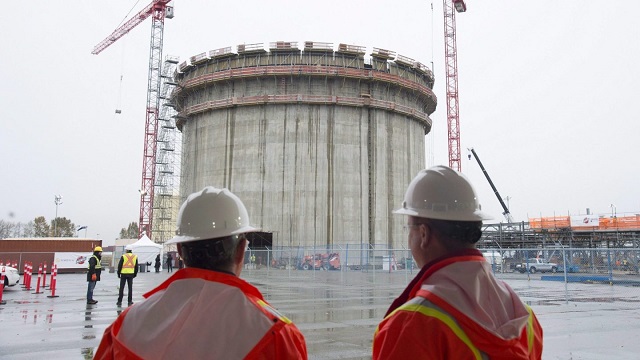
 Canadian Energy Centre2 days ago
Canadian Energy Centre2 days agoNorth America LNG project cost competitiveness
-

 Addictions6 hours ago
Addictions6 hours agoCity of Toronto asks Trudeau gov’t to decriminalize hard drugs despite policy’s failure in BC
-

 International1 day ago
International1 day agoNYPD storms protest-occupied Columbia building, several arrested
-
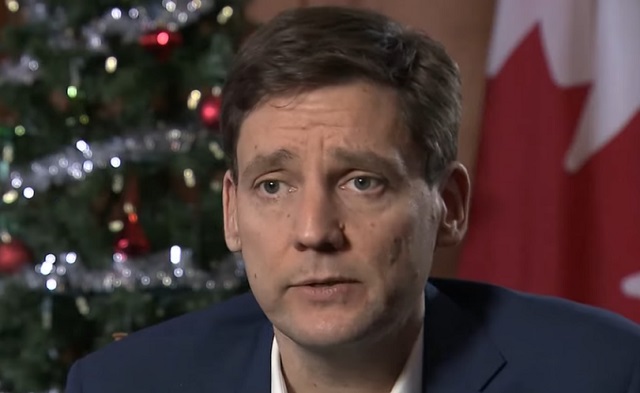
 Addictions1 day ago
Addictions1 day agoBritish Columbia to re-criminalize hard drug use in public after massive policy failure
-
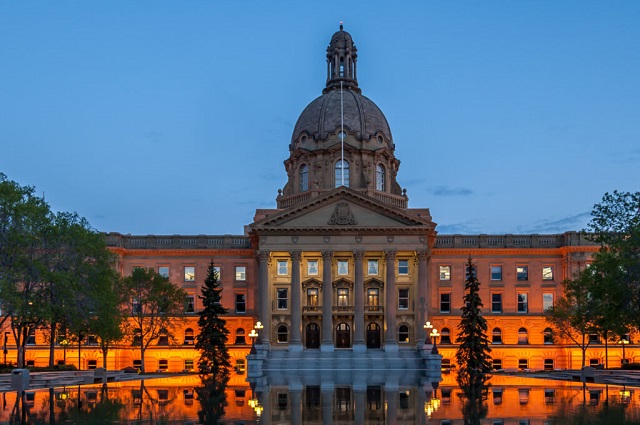
 Alberta1 day ago
Alberta1 day agoProtecting the right to vote for Canadian citizens: Minister McIver
-

 Great Reset1 day ago
Great Reset1 day agoMiddle school girls who refused to compete against male banned from next track meet









